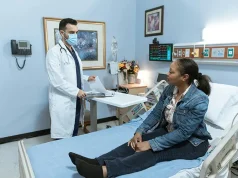
Coming down with Salmonella poisoning is more than an annoyance. Exposure to the bacteria can cause serious health problems. Some health issues can even be life-threatening. If you’re exposed to Salmonella, you may be able to recover compensation.
So, what are the common types of available compensation for Salmonella victims? Your compensation may cover things like your medical expenses, lost wages, and even your pain and suffering. However, before you can file a food poisoning injury claim, there’s a bit you should know about the process.
Do You Have Salmonella Poisoning?
You can’t file an injury claim if you can’t provide proof you contracted Salmonella. In other words, you can’t just say your upset stomach is caused by exposure to Salmonella. You’re going to need to provide proof.
This means making an appointment with your healthcare provider and sitting through a medical checkup. If your symptoms are severe, don’t wait for an appointment, head to the closest hospital. Some Salmonella poisoning cases can quickly turn life-threatening without medical treatment.
Save all of your medical records and receipts for any medications. This includes over-the-counter remedies. If your symptoms are severe enough to require long-term care, get everything in writing from your physician.
Can You Claim Compensation for Your Salmonella Injury?
When you’re browsing a restaurant menu or grabbing something at the grocery store, you’ve probably noticed the occasionally lengthy product description.
Along with the calorie count, everything has a list of ingredients. This descriptive labeling is a requirement set down in consumer protection laws. In essence, this law helps ensure consumers always know precisely what they’re buying and eating. If an ingredient is included in the food item, it must be listed on the label.
What about accidental cross-contamination? Are there laws prohibiting this behavior? Cross-contamination is a big no-no in the food industry, and yes, there are laws. The Food and Drug Administration (FDA) is responsible for regulating food safety, including preventing cross-contamination.
Cross-contamination can cause more than a food allergy. You may end up with a foodborne illness like Salmonella.
You may have grounds for filing an injury claim if the product’s label is incomplete. This type of food-borne illness claim is usually relatively easy to prove. The presence of the ingredient missing from the label is typically enough to prove negligence. Proving cross-contamination is a little harder, and it’s also when it helps to have an experienced injury attorney working on your claim.
Who Can Be Liable In a Salmonella Injury Claim?
Just about anyone manufacturing, preparing, selling, or even serving the food can be liable for a Salmonella injury claim. However, this doesn’t necessarily mean you can or even should file a compensation claim.
For example, if you have a shellfish allergy and are serving up shrimp cocktails for friends and family. Cross-contamination can occur if you’re not careful. If you come down with a food-borne illness, you’re the liable party. However, you’re probably not going to try to file a claim against yourself. Your insurance company is going to deny your claim once they stop laughing.
You’re probably also not going to want to file a claim against friends or family unless the exposure to the bacteria is intentional. You may have a family member or friend who simply doesn’t believe raw chicken can cause Salmonella. If they serve a dish without letting you know the ingredients may have come into contact with raw poultry, this may be the exception to not suing friends or family.
Restaurants can also be liable for a Salmonella illness, along with the product manufacturer or grocery store. Who you hold liable depends on a few factors, like where you purchased or consumed the food, along with its labeling.
How to Prove Liability in a Salmonella Food Injury Claim
You can’t just list your damages like medical expenses and hope to receive compensation for a food illness claim. Insurance companies are going to require proof that your injuries are caused by exposure to tainted food. What type of evidence should you and your injury attorney submit with your claim? These can include:
- A receipt proving you purchased the tainted food from a grocer, restaurant, etc.
- A copy of the restaurant’s menu showing the ordered food item.
- Your health records detailing your Salmonella diagnosis and subsequent treatment.
Get ready to review everything you consumed on the day you experienced Salmonella poisoning symptoms. The insurance company is probably going to want to check to see if something else is responsible for your injury.
If possible, try to save a portion of the food causing your symptoms. Your injury attorney can have the sample tested for the presence of the bacteria. If you didn’t keep a portion of the food, don’t worry. You should still be able to file an injury claim.
Types of Recoverable Compensation
Your food poisoning injury claim will probably include both economic and non-economic damages. Your economic damages are things like your medical expenses and lost wages if your illness forces you to miss work.
Non-economic damages like pain and suffering are also common in food illness claims. Since non-economic losses are intangible, calculating their value can be a bit tricky. So, how do you place a price tag on your pain and suffering? Chances are, you’re placing a high value on your mental anguish.
Unfortunately, you can’t claim what you believe your non-economic damages are worth. Instead, you and your attorney can use one of two methods to calculate the value of your non-economic damages. The multiplier method is the most common, but you can also go with the per diem formula. Your Houston Salmonella injury attorney can walk you through the different formulas.
If your exposure to the bacteria is intentional, you may also be eligible for punitive damages. You can’t claim punitive damages, these are only awarded by a judge or jury when gross negligence is present.
Don’t Suffer Through a Food Poisoning Injury Alone
Salmonella poisoning can be serious, and exposure to the bacteria can disrupt every aspect of your life. Don’t go through this alone, let an experienced Houston injury attorney help you recover compensation. From helping to prove liability to gathering evidence, your attorney can help ensure you receive fair compensation.





